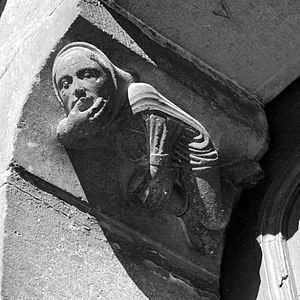*
The Pauline Epistles – Part Two
.
COVERED IN THIS POST:
- “Words of the Lord”: from earth or heaven?
- Why doesn’t Paul quote Jesus more extensively?
- The epistles exclude an historical Jesus
- Paul’s conversion chronology
- Paul’s crash course on Jesus from Cephas and James
- How much interpolation in Paul?
- Surveying the counterarguments
- Ehrman answering G. A. Wells
- Why did Paul not use Jesus’ miracles to prove the imminence of the kingdom?
.
* * * * *
The Witness of Paul
(Did Jesus Exist? pp. 125-140)
.
The Teachings of Jesus in Paul
In this category, Bart Ehrman has precious little to work with. (He has actually referred to the two parts of Jesus’ Eucharistic pronouncement at The Lord’s Supper in 1 Corinthians 11:23-26 as “two sayings,” an attempt at ‘padding’ I’ve never seen before!) Now his focus is on the two little “words of the Lord” in 1 Corinthians 7:10 and 9:14. Not only are these precious little, they are of paltry substance compared to the great ethical teachings of the Gospels, on which Paul and every other epistle writer has not a word to say.
The first is given by Ehrman as:
But to those who are married I give this charge—not I, but the Lord—a woman is not to be separated from her husband (but if she is separated, let her remain unmarried or else be reconciled to her husband), and a man should not divorce his wife.
Ehrman refers to this as a paraphrase of
. . . a saying of Jesus [as in Mark 10:11-12] in urging believers to remain married; that this is a saying tradition going back to Jesus is shown by the fact that at this point Paul stresses that it is not he who is giving this instruction but that it was already given by the Lord himself. (DJE? p. 125)
Ehrman would do well on the staffs of New Testament publications like the NEB who regularly wear Gospel-colored glasses when doing their translations. His “it was already given by the Lord himself” nicely conveys a saying delivered by Jesus in the past, which Paul knows through oral tradition. But if those glasses are set aside, one gets a very different impression. And one that fits what the text actually says:
To the married, I enjoin—not I, but the Lord . . .
The words are saying that the Lord enjoins you now: ‘It is not I who enjoins you this way, but the Lord who enjoins you this way.’ In the present, not the past. How is the Lord doing this in the present? Through Paul as his spokesperson.
From earth or from heaven?
Ehrman makes only a cursory reference to a prominent thread in mainstream scholarship over the last several decades which sees Paul and other Christian apostles/prophets proclaiming words which they believe they have received directly from the Lord in heaven. Werner Kelber (The Oral and the Written Gospel, p.206) says: Continue reading “19. Earl Doherty’s Response to Bart Ehrman’s Case Against Mythicism – Pt. 19”
Like this:
Like Loading...

